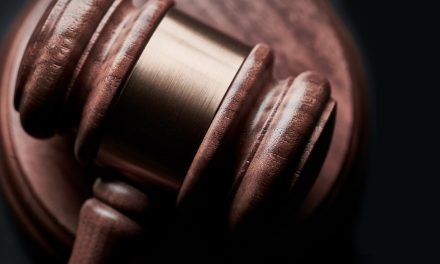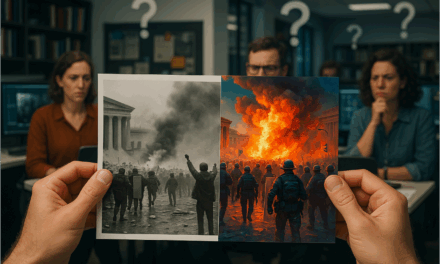Heidi Hautala is the Finnish Member of the European Parliament (Greens, European Free Alliance Group)
Interview for the Political Aspects study of the initiative on impunity and the rule of law, 7/4/2011, (Highlighted in bold are passages cited in the Political Aspects Study)
- What lasting damage is done on societies where journalists are attacked or criminalised?
Journalists are key players in pressing for human rights and making them a reality. But that makes them vulnerable to attack. And they are under attack because they are performing a public service. Very often one has to reckon that journalists are a specific category of human rights defenders, a very important category — a decisive group among the human rights defenders.
- Is there a case for some additional means – such as a binding protocol or convention, to deal specifically with this issue? Or do you think that it could make a practical difference if the EU were to promote the Council of Europe Guidelines on Impunity?
I do believe the Council of Europe guidelines would deserve close attention from the EU as well. I am very enthusiastic about the work of the Council of Europe. The Parliamentary Assembly of the Council of Europe has done several very good reports where they concentrate specifically on the work of journalists.
- As a parliamentarian are you satisfied with the policy and practice of the European Union in this respect, considering that reports from NGOs suggest that conditions for free and independent media are not so well maintained in a number of EU countries?
Yes, I follow the reports of Freedom House, and Transparency International and Reporters Without Borders: all these organisations have shown that freedom of expression in several EU countries is in decline, from Romania to France, from Italy to Hungary. And the European Parliament has been very fiercely debating the new Hungarian media law, which is unfortunately an example of a serious concern on freedom of journalists and media
I believe this is a good moment, amid the revolutions and turmoil in the Arab world, for the EU to take a very decisive step towards abolishing all kinds of double-standards. One double standard is that we have human rights violations towards journalists and freedom of expression within EU countries. The other one is that these so-called human rights instruments that the EU has put in place don’t are not given a high importance. So I think the criticism is valid, and there are several reasons why this is good time to discuss how to improve the EU institutions’ behaviour towards third countries in relation to human rights and freedom of expression.
I mentioned the apologies by the EU for having neglected serious human rights violations in North African countries. I can see there is a real self-criticism in the European Commission already. But secondly, this is a very good moment to discuss these things because Madame Ashton [the EU’s High Representative for Foreign Affairs] has said there will be a review of human rights policy, and we are actively talking to the 27 EU foreign ministers and their Human Rights attaches. We are preparing key issues for that review, and it is now up to Baroness Ashton to make it an inclusive, participatory process. The European Parliament and EU foreign ministers can participate in discussing what a new revised EU Human Rights policy should be.
- The obstacle is national sovereignty, isn’t it? What approach should be taken in cases when states are seen to violate their obligations, including the European Convention on Human Rights?
I would say that one important aspect to improve is the Committee of Ministers of the Council of Europe, which is the guardian of the European Convention on Human Rights. The Council of Europe member states should be much more stringent towards breaches of the Convention, which is very strong on freedom of expression. That’s one thing that governments could demand much more strongly.
But I also feel that might also be achieved if EU human rights policy were to be taken up at the top level. The treatment of journalists is a touchy subject, and when [Vladimir Putin was in Brussels two weeks ago with a large number of ministers from his government, we were informed that [European Commission President Jose Manuel] Barroso had spent one hour in a tete a tete with Putin. We were told that Barroso really gave Putin a hard time by also raising individual cases like [that of] Anna Politkovskaya, It is sad to see that basically nobody has been brought to justice for her murder which took place in October 2006. There is a need for European leaders to include human rights issues in their deliberations with third countries.
- How might you seek to ensure that the Committee of Ministers [of the Council of Europe], where nearly every member state stands accused at some time, would insist on tighter timeframes or better compliance?
Oversight is really the word that needs be used this context – the work of Committee of Ministers in the Council of Europe never gets a lot of public attention, so maybe to give a role to civil society in this monitoring work would be one idea. There is a lot of information among the journalists’ community themselves which could be brought into this kind of formal oversight procedures. The problem is that there are legal instruments but they are not implemented, or they are contradicted by national laws which severely restrict freedom of expression?
-6 The EU is sometimes accused of being soft on its friends – for example towards the United States, with respect to denouncing human rights violations and the mistreatment or violence against journalists. Is that point valid?
Yes I am the first to say that double standards are a big problem. It discredits any work on human rights when there are geopolitical or military interests that somehow dominate and overrule the leverage that EU member states have on human rights.
- What is the impact that results if Mr Barroso or another representative speaks to a foreign government leader such as Russia’s Prime Minister Mr Putin in those terms? Some say it is better to do it behind the scenes.
Madame Ashton said when she started that she believes in quiet diplomacy. But I have the feeling that she is ready to admit today that there is a case for publicly raising issues of serious human rights violations, and that quiet diplomacy is not enough. I really hope there will be a critical self-analysis of EU policies towards third countries when there are serious human rights violations. For instance the European Parliament has in a couple of instances raised the possibility of visa bans and asset freezes for persons who are implicated in serious human rights violations. We do need more efficient instruments and more efficient guidelines than the EU already has.
Posted: 6 June 2011



